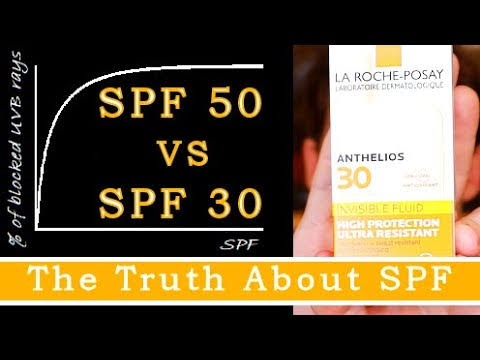With the advent of summer, and with the warm rays of the sun, additional protection is needed for the skin. So, if you’re looking for a new face sunscreen this season, how do you know which one is better? And does it matter whether you choose SPF30 or SPF50? Follow the details:
Why do you need sunscreen?
Skin protection creams
It’s easy to think of sunscreen as a summer vacation skin care product, but that’s a common misnomer! Sun Protection Factor (SPF) is an essential part of any daily skincare ritual. It not only protects your skin from painful sunburns, but also prevents harmful UV rays from damaging skin cells.
So, what’s the problem with sunlight anyway? After all, doesn’t it give us vitamin D, which is essential for healthy bones, muscles, and teeth?
Yes, sunlight gives us health and psychological benefits, but ultraviolet rays, a form of electromagnetic energy..is the risk factor and that’s why we need sunscreen.
Why is UV rays dangerous?
The role of energy is to make something happen, or in other words, to make a difference. When this occurs within skin cells, photodamage occurs which means DNA changes that can lead to cell mutations and visible signs of premature aging including:
It’s a long list, not to mention an increased risk of skin cancer. Many of us forgo sun protection in our twenties and thirties, only to pay for it later with our skin problems.
It’s also appropriate to add that if you use highly active ingredients like retinol or AHAs, you may make your skin more sensitive to the sun and more susceptible to damage. When you use products of this type, it is important to use an SPF along with it.
What does sunscreen do?
Continued use of SPF helps prevent these noticeable signs of skin aging and lowers the risk of skin cancers and carcinogens.
The sunscreen contains active ingredients to prevent the sun’s rays from reaching the skin. This can be achieved through physical components such as zinc oxide that block and dissipate sunlight before it penetrates the skin or chemical components such as octisalate which absorb UV rays before they have a chance to damage the skin.
It is also beneficial to use a sunscreen that provides broad spectrum protection because this means that it blocks both UVA and UVB rays, both of which can damage the skin.
What does sun protection factor mean?
SPF stands for sun protection factor. The number indicates how long it will take for the sun’s ultraviolet (UVB) rays to redden your skin when applying the product according to the directions and compared to the amount of time it will take if you don’t wear sunscreen.
Therefore, SPF 30 provides more protection than your normal skin without any sunscreen. But just because it enables you to stay longer in the sunlight without burning out, that doesn’t mean you should!
SPF 50 gives you the highest level of protection, but when it comes to which factor you should use, it depends in part on your age, lifestyle, location and season. For example, during hot months when you’re outside more or you’re in a hot country, consider applying SPF50 sunscreen for maximum protection.
While in the winter or when we’re mainly indoors, SPF30 is just right and can be used all year round. You may be wondering why use it in winter, because UV rays can penetrate through thick clouds and windows.
The right SPF may also depend on your skin type, so if you have a lot of moles or your skin is very pale that can burn easily, consider the ultimate in protection. Some prefer to use SPF50 on areas that age first, such as the face, neck, and chest, while they may apply SPF30 to the rest of the body.
Age is another factor because skin becomes more sensitive, thinner and fragile as we age, so SPF50 may be more appropriate. As mentioned earlier, the types of skin care products you use should be taken into consideration because you may need to increase your SPF.


